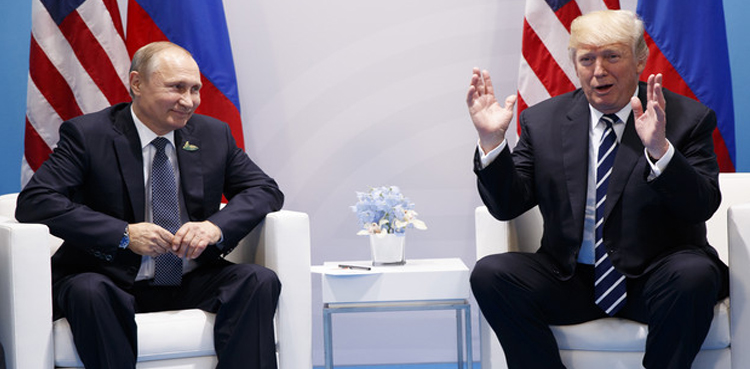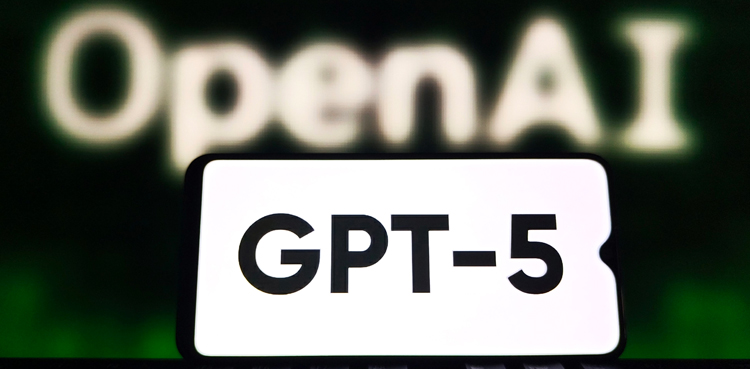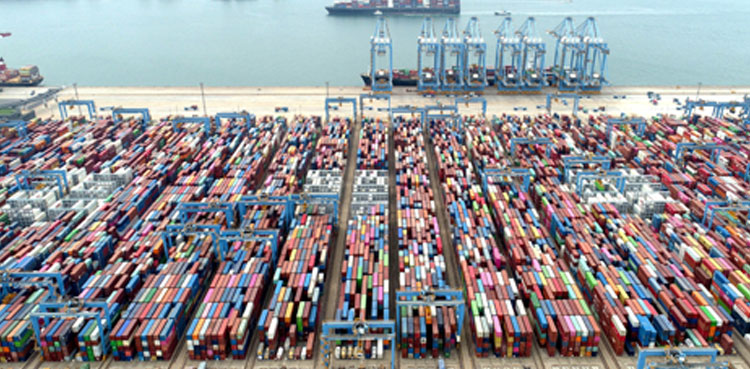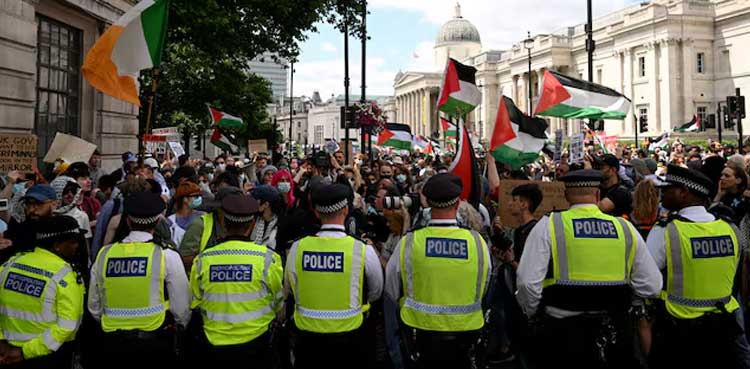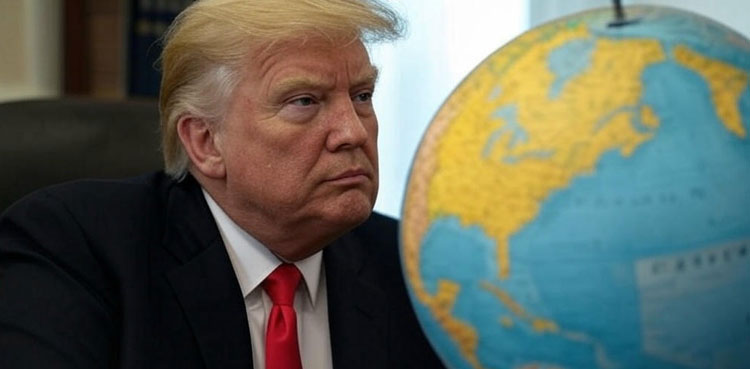WASHINGTON: US President Donald Trump said Friday he would meet his Russian counterpart Vladimir Putin in one week in Alaska, and suggested that an eventual deal between Moscow and Kyiv to end the war in Ukraine could involve swapping territory.
The Kremlin later confirmed the summit, calling the location “quite logical.”
“The presidents themselves will undoubtedly focus on discussing options for achieving a long-term peaceful settlement of the Ukrainian crisis,” Kremlin aide Yuri Ushakov said in a statement posted on Telegram.
Tens of thousands of people have been killed since Russia launched its full-scale invasion of Ukraine in February 2022, with millions forced to flee their homes.
Putin held consultations Friday with the leaders of China and India ahead of the summit with Trump, who has spent his first months in office trying to broker peace in Ukraine without making a breakthrough.
“The highly anticipated meeting between myself, as President of the United States of America, and President Vladimir Putin, of Russia, will take place next Friday, August 15, 2025, in the Great State of Alaska,” Trump said on his Truth Social site.
He said earlier at the White House that “there’ll be some swapping of territories to the betterment of both” Ukraine and Russia, without providing further details.
Trump invited to Russia
Three rounds of negotiations between Russia and Ukraine have failed to bear fruit, and it remains unclear whether a summit would bring peace any closer.
Russian bombardments have forced millions of people to flee their homes and have destroyed swathes of eastern and southern Ukraine.
Putin has resisted multiple calls from the United States, Europe and Kyiv for a ceasefire.
He has also ruled out holding talks with Volodymyr Zelensky at this stage, a meeting the Ukrainian president says is necessary to make headway on a deal.
The Alaska summit would be the first between sitting US and Russian presidents since Joe Biden met Putin in Geneva in June 2021.
Trump and Putin last sat together in 2019 at a G20 summit meeting in Japan during Trump’s first term. They have spoken by telephone several times since January.
The Kremlin’s Ushakov said that Trump had been invited to visit Russia.
“Looking ahead, it is natural to hope that the next meeting between the presidents will be held on Russian territory. A corresponding invitation has already been sent to the US president,” Ushakov said.
Witkoff visit
The Kremlin said Friday that Putin had updated Chinese President Xi Jinping on “the main results of his conversation” with US special envoy Steve Witkoff, who visited Moscow earlier this week.
Xi expressed support for a “long-term” solution to the conflict, the Kremlin said.
China’s Xinhua state news agency quoted Xi as having told Putin: “China is glad to see Russia and the United States maintain contact, improve their relations, and promote a political settlement of the Ukraine crisis.”
Moscow and Beijing have deepened political, economic and military ties since the start of Russia’s offensive in Ukraine.
Putin also spoke by phone to India’s Prime Minister Narendra Modi, after both countries condemned new US tariffs over New Delhi’s oil purchases from Russia.
Xi and Modi have both tried to tout their own peace initiatives for Ukraine, though they have gained little traction.
